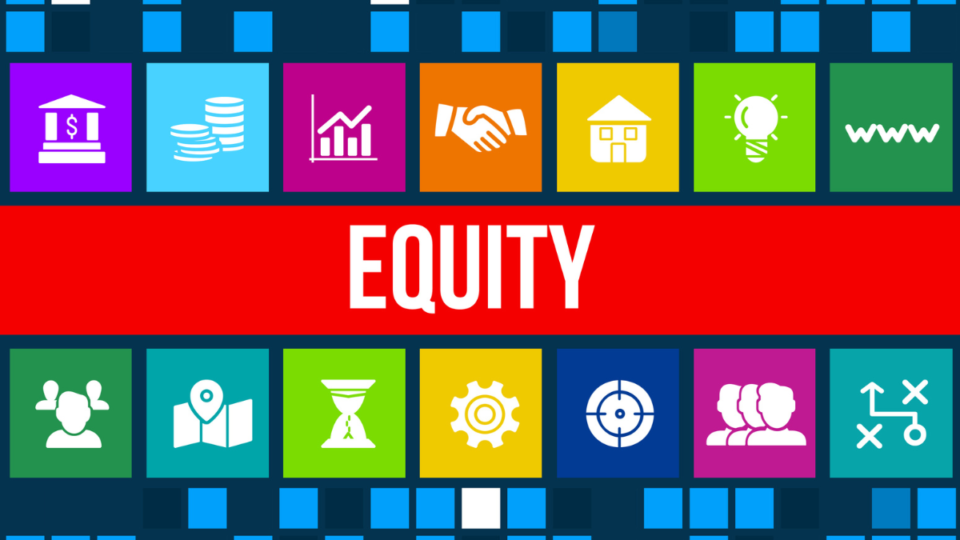David Rewcastle of Darien, Connecticut, is an Equity and Fixed Income Analyst with a background in Finance, Economics, and Middle East Studies. He has worked with established companies such as Argus Research Corporation where he was in Oilfield Services & Gas Utilities, Energy-related equities.
At Argus, David was an equity research analyst covering a portfolio of 28 stocks in the energy services, gas utility, and energy-related sectors. Moreover, he also provided portfolio managers at Argus Investors’ Council with Long/Short investment recommendations for the energy, gas utility, and water utility sectors.
In this article, we discuss equity investing with David Rewcastle to determine if this strategy is right for you.
What is stock equity?
Equity is commonly referred to as shareholders’ equity or owners’ equity for privately-held companies. It represents the money that would be returned if all assets were liquidated and all debts were paid in liquidation. It is the sum of all company sales less any liabilities that the company has not transferred.
Additionally, shareholder equity may be used to represent the company’s book value. Payment-in-kind is another way to offer equity. It can also be used to denote pro-rata ownership in shares of a company.
An analyst will use equity to evaluate a company’s financial health. It can be found on the balance sheet.
Why should I invest in equities?
With the expectation of capital gains and capital dividends, equity investors buy shares in a company. David Rewcastle explains equity investment that rises in value will result in the investor receiving the monetary difference if they sell their shares or the company liquidates its assets and fulfills all its obligations. By diversifying a portfolio, equity investments can help to increase asset allocation.
Read: What is a centralized market?
What are the potential rewards of equity investments?
- An equity investment offers the opportunity to increase the principal amount invested. These benefits come in the form of dividends and capital gains.
- An equity fund provides investors with a diversification option, typically at a minimal initial investment.
- An investor would need to invest more capital if they wanted to attain the same level as an equity fund’s diversification.
- If a company needs additional capital, investors may be able to increase their investment via rights shares.
What are the risks associated with equity investments
There are many benefits to investing in equity investments. Comparatively, as with all investments, there are also risks. Equity investments are directly affected by market risks. Market forces can cause stock prices to rise or fall. Market risk can cause investors to lose part or all of their investments.
David Rewcastle shares other types of risk that could affect equity investments:
- Credit risk A company may not be able to repay its debts.
- Foreign currency risk A company’s value can change due to shifts in international currencies.
- Liquidity Risk: A company may not be able to pay its short-term debt obligations.
- Political Risk: A country’s political instability or changes could cause a company to lose its returns.
- Economic Concentration Risk A company’s value may drop if it is too concentrated in one entity, sector, or country (putting all its eggs into one basket). The company could be adversely affected if this factor falls in value.
- Inflation Risk: A company’s worth could plummet due to rising inflation.
Common Variations of Equity
Equity is not just used for evaluating companies. Equity can be described as the degree of ownership in an asset, after deducting all debts.
David Rewcastle explains some common variations of equity:
- A stock, or any other security that represents an ownership interest in a business.
- The amount of money contributed by shareholders or owners to the company’s balance sheets, plus any retained earnings (or losses). This is also known as stockholders’ equity or shareholders’ equity.
- Margin account value minus the amount that the account holder borrowed in margin trading.
- The difference between the property’s current market value, and the mortgage amount owed by the owner. This is the amount the owner would receive after the property has been sold and any liens have been paid. Also known as real property worth.
- Equity is money left after a company goes bankrupt. This is also known as “ownership equity”, or risk capital, and “liable capital”.
Read: 8 ways to save more money starting today
Financial advice can help you plan for market downturns and find new opportunities. Accordingly, you can manage your assets in your best interest by seeking the advice of a fiduciary advisor, regardless of whether you are bullish or bearish. David Rewcastle of Darien, CT will help you limit your downside risk by preparing you with sound advice. Connect with David Rewcastle to learn more about how you can put your money to good use.
Read: David Rewcastle Tells USA Today “Maybe this will be a teachable moment”


